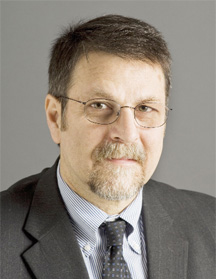By Hasan Tuluy
Hasan Tuluy is World Bank Vice President for Latin America and the Caribbean.
Next year marks a decade since Latin America and the Caribbean took a dramatic turn for the better. After decades of stagnation, the region began a speedy economic and social transformation in 2003 that lifted 73 million out of poverty and grew the ranks of the middle class by more than 50 per cent or 50 million people.
According to World Bank research, today there are already more Latin Americans living in middle class than in poverty.
This does not include those in the vulnerable class, or lower middle class, with higher probability to fall back into poverty.
It is hard to overstate what these tectonic shifts over the past decade mean for the region. Clearly the many millions who have seen their conditions improve can attest that it is no longer only the rich that benefit from the region’s economic growth.
While inequality rises around the world, Latin America has seen it significantly decline for the first time in the last four decades.

Nevertheless, Latin Americans may be the first to stress that these gains are not enough. According to recent surveys done by the Chilean-based Latinobarometro, many Latin Americans still believe they are worse off than the rest.
This may be a matter of perception – as more boats are lifted simultaneously; our individual sense of relative improvement diminishes.
Fixing the roof when it is still sunny
No question though that much work remains to be done. And the time to do it is now. You don’t fix the roof when it is raining.
Defining priorities is made more difficult by the changing world around us. A homeowner would probably focus on fixing the roof right away if the rainy season was right around the corner.
One priority that can’t wait is the “battle of productivity”. Moving toward developed status will hinge on additional wealth creation by remaining competitive and for that it is imperative to reduce logistics costs, update infrastructure, and improve quality of education.
On top of this, future global trendspoints to some likely developments over the next decade and beyond: continued emergence of China as an economic superpower; attainment of energy independence by the United States; increasing demand for agricultural commodities to feed a growing population and fast technology innovation that creates a smarter, more mobile world. China’s sustained growth is likely to increase demand for commodities, continuing the boom that has fed the region’s economic growth in the past decade. US self-sufficiency in energy production, especially through natural gas, could mean a drop in global oil prices affecting oil exporters, such as Mexico, Venezuela and Ecuador, but favouring oil dependent nations in Central America or the agriculturally rich nations of the South.
To sustain and expand regional progress —in this uncertain context—the State will need to increase resources at its disposal and be more efficient in its use.
Building a new social contract
Fortunately, part of Latin America’s recent transformation has been the governments’ concerted efforts to modernise public spending, focusing efforts to obtain better results, with the added benefit of increasing public trust in governments.
Traditionally, however, rich Latin Americans, and now the middle class, have opted out of public services such as education, electricity, citizen’s security and health as soon as they can afford to do so. At the moment, the state serves the vulnerable while the well-off see no benefit in being part of a broader social contract. This needs to change.
Today, with the exception of Brazil, the average country in the region collects only about 17 per cent of GDP in public revenue – half the average of OECD countries.
Moreover, less than 4 per cent of state revenue comes from personal income taxes, as compared to 27 per cent in industrialised nations. To make up for the shortfall many LAC countries have adopted regressive, indirect taxes such as the VAT, which tax more those who haveless.
For years to come the region will need to confront difficult challenges old and new –from the effects of rapid urbanization or environmental degradation, to global economic shocks, rising food prices, and destabilizing crime and violence.
A renewed commitment from everybody in society, starting from those who have the potential to do more is crucial, otherwise societies will stay fragmented, governments will have limited resources for necessary investments, and the poor and vulnerable will remain stuck with limited access to opportunities.





